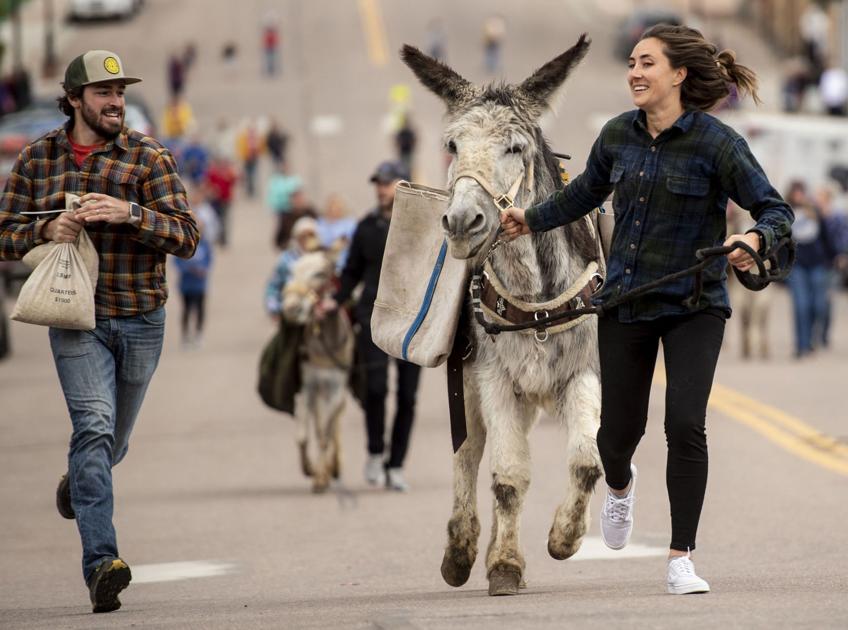Back when the West was still being won, there were VIDs: Very Important Donkeys.
Cripple Creek likes to celebrate the animals who helped create the tiny mining town with Donkey Derby Days. The free festival is back, after being canceled last summer due to the pandemic, and takes place Saturday and Sunday.
“It’s one of the oldest and longest running festivals in Colorado,” event organizer Ellen Moore said. “It celebrates the heritage of donkeys who — they were beasts of burden — were used in every single mine during the Gold Rush and helped build Pikes Peak Highway and Ute Pass. They helped build the Pikes Peak region.”
When the miners left back in the day, they released the donkeys into the wild. Ten of their relatives still roam freely throughout town from mid-May to mid-October, where they grow plump and happy on apples and carrots from tourists. In the colder months, the animals, who are under the care of the nonprofit Two Mile High Club, are relegated back to their pen at the end of town and go on their winter hay diet.
“Everybody loves the donkeys,” said Moore, who’s part of the club. “It’s one of those things that brings a smile to everybody’s face. People are over the moon when they see them. I work for the city part time in tourism, and when I’m at the Heritage Center or the Outlaws & Lawmen Jail Museum, 50% of people who come in are like ‘Where are the donkeys? We heard about the donkeys.’”
Donkey Derby Days started 90 years ago when a few Cripple Creek businessmen bellied up to a bar to chat about drawing more people to town during the summer months. Their bright idea? A festival. And to sweeten the pot? A festival featuring donkey races.
In the early years, race participants rode donkeys 5 miles from Victor to Cripple Creek. In the ’70s, the race morphed into teams of people leading donkeys along Bennett Avenue, about a half-mile stretch.
Nowadays, teams don’t race the town’s wild herd of donkeys. Instead, a professional squad of 10 racing burros is hired for the event.
“We could never race our donkeys,” Moore said. “You can’t get on them. They’d either kick or probably throw you off.”
This year’s races are at 2 p.m. Saturday and Sunday. But there’s more to the festival than watching people try to manipulate the burros down the main drag for the grand prize of a trophy and bragging rights. Special this year will be the display of Florence and Cripple Creek Narrow Gauge locomotive No. 20, which has been fully restored by the Colorado Railroad Museum as Rio Grande Southern No. 20. The engine hasn’t been in the district for more than a century, and will be in front of the Cripple Creek District Museum on Friday and Saturday.
The Florissant Fossil Quarry educational and interactive bus also will be on hand, as well as live music by Tenderfoot Bluegrass Band on Saturday night. Other activities include a parade at 11 a.m. Saturday, a kids zone, donkey rides for kids, petting zoo, vendors, art show, beer garden, ax throwing, food and root beer floats.
“They were invented in Cripple Creek in 1893,” Moore said of the root beer floats. “I always tell people to Google it. It’s not root beer, it’s not ice cream. The float was invented in Cripple Creek on Myers Avenue.”
Contact the writer: 636-0270
This content was originally published here.

